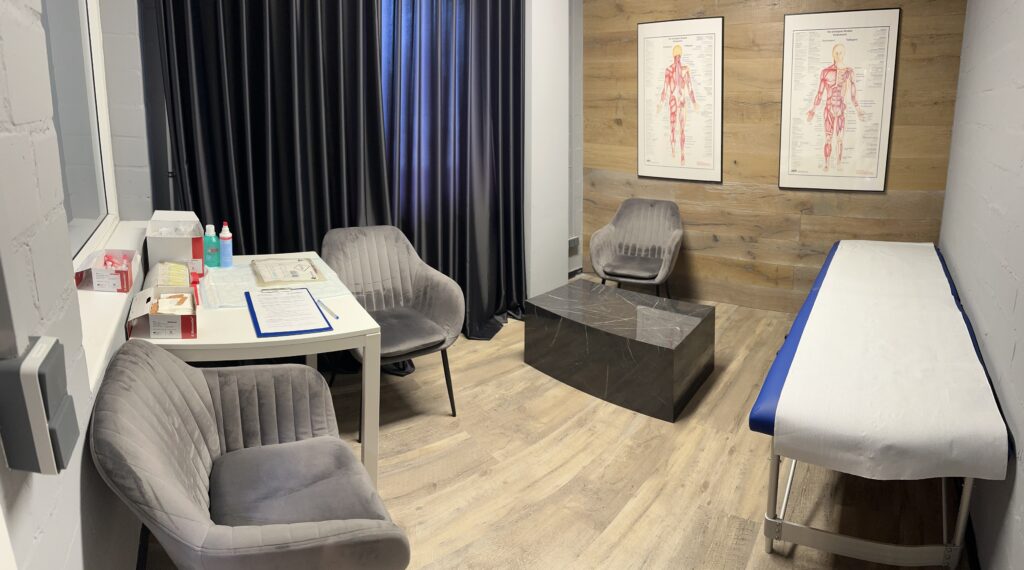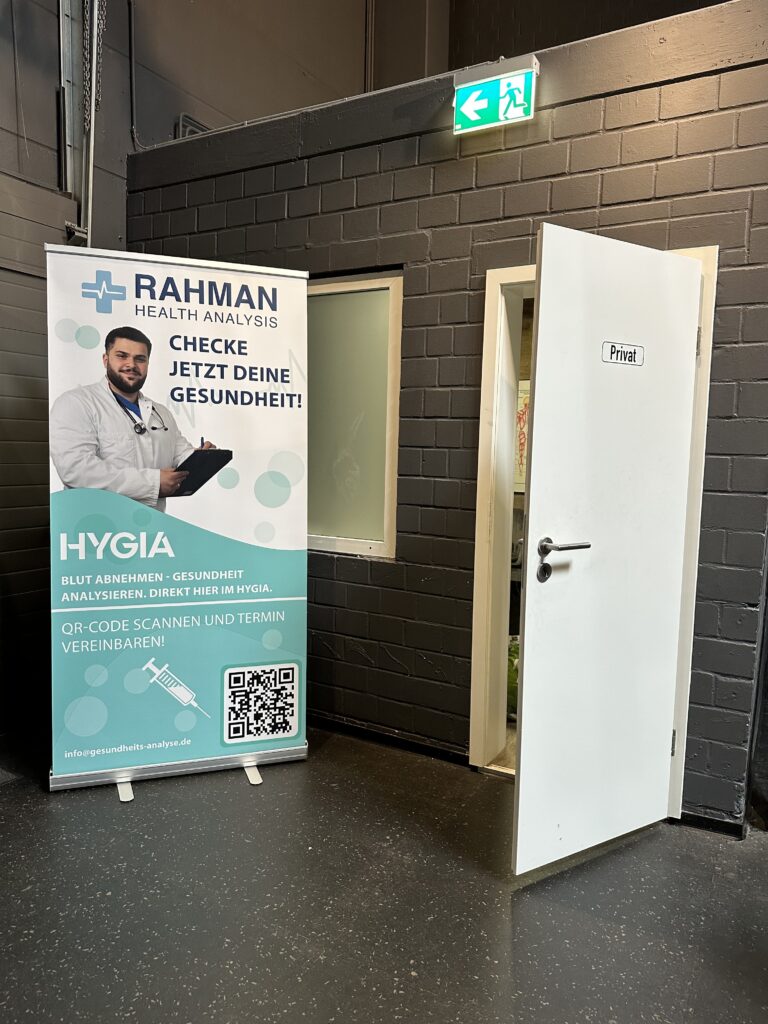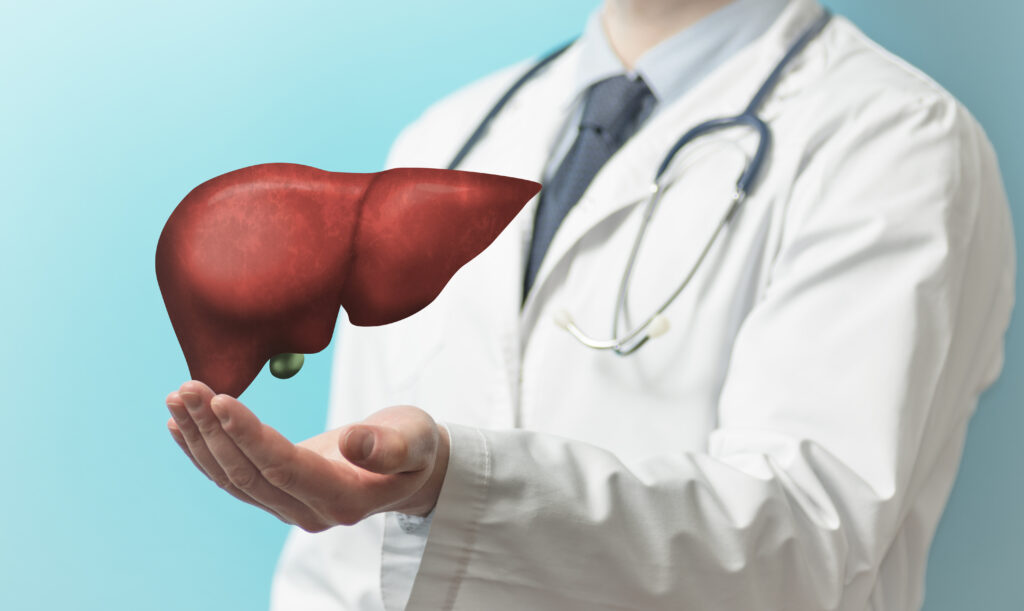The liver
- your silent high performer!
The liver works in secret - it does its work without us noticing it. And this is precisely what makes it so special, but also so vulnerable: because initial changes often go unnoticed. Yet the liver is one of the most important organs for our health. It filters toxins, regulates metabolism, stores vitamins and controls blood sugar. In short: if the liver gets out of balance, many other things get out of balance too.
In our practice, we regularly analyse the liver values in your blood - not just when symptoms occur, but also as a preventative measure. This is because many changes can be recognised early and gently corrected - before they cause noticeable damage.

What lab results reveal about your liver
A simple blood test can tell you a surprising amount about your liver function. Among other things, we analyse the enzymes GPT (ALT), GOT (AST), GGT, as well as the levels of bilirubin and alkaline phosphatase. These values show us whether the liver cells are healthy, whether there are signs of inflammation or whether the bile flow is impaired.
We also look at blood lipids, the so-called CRP (an inflammation marker) and, if necessary, special parameters such as ferritin, which can give us indications of iron overload or liver stress. This gives us a very clear picture - about the condition of your liver, but also about possible stress caused by diet, medication, alcohol or stress.


Sport and liver
Athletically active people in particular often underestimate how sensitively the liver reacts to stress. High-intensity training, a high-protein diet, certain supplements - all of these can challenge the liver. Medication for pain or sore muscles also has an effect on liver function. In practice, we repeatedly see slightly elevated liver values in patients who are involved in sport - sometimes unproblematic, sometimes an important warning sign.
A check-up is particularly useful during phases of intensive training or dietary changes. After all, a healthy liver is the basis for performance, regeneration and hormonal balance. It is the organ that "clears away the rubbish" when you demand a lot from your body.
What we can do for you
In our practice, you will receive a well-founded liver analysis - clear, understandable and tailored to you. After taking your blood sample, we will analyse your values individually, discuss correlations and explain what is important for you. If necessary, we will show you how you can do something good for your liver with diet, exercise and targeted relief.
Sometimes it is enough to cut out the right things - sometimes conscious support with certain micronutrients or herbal liver therapies is needed. Above all, it is important to look at things early on instead of waiting for symptoms to appear. That's exactly what we're here for.

Frequently asked questions
Our practice focuses on your health and well-being.

What are the most important liver values in the blood?
As a rule, we look at GPT (ALT), GOT (AST), GGT and bilirubin. These values provide indications of cell health, inflammation and bile flow.
How do I recognise that my liver is under stress?
Many people don't even notice it. The first signs can be tiredness, a feeling of pressure in the right upper abdomen, skin changes or concentration problems - but often nothing at all.
Can sport influence liver values?
Yes - intensive exercise or sore muscles can lead to a temporary increase. Certain protein shakes or food supplements also have an effect. Differentiation in the laboratory is then important.
How often should I have my liver values checked?
At least once a year as part of a health check-up. More frequently in the case of abnormal values or increased risk (alcohol, medication, family history).
Is a fatty liver also possible in slim people?
Yes - so-called "lean NASH" occurs in people of normal weight, often due to hidden sugar overload or insulin resistance. A blood count can recognise this at an early stage.
What helps the liver the most?
Less sugar, less alcohol, high-quality fats, regular exercise - and above all: breaks for regeneration. Bitter substances or herbal preparations can also have a supportive effect.
What role does ferritin play in liver diagnostics?
Ferritin is actually an iron marker, but also indicates inflammation and iron overload. It is a valuable additional parameter in the case of abnormal liver values.
Do I have to be sober for the test?
Yes - ideally you should not have eaten for 8-12 hours to avoid distorted values.
Is the liver examination covered by health insurance?
In our practice, diagnostics are carried out according to GOÄ. Private health insurance companies usually cover the costs.
What happens if my values are elevated?
We then discuss the causes individually, categorise the risk profile and draw up a plan - whether observation, diet or targeted therapy. In most cases, it is very easy to take countermeasures.